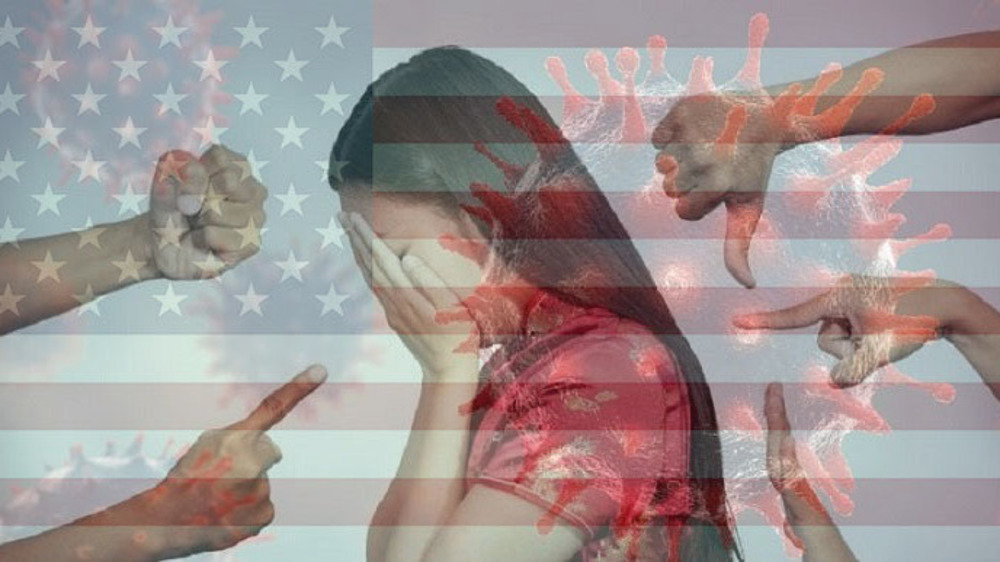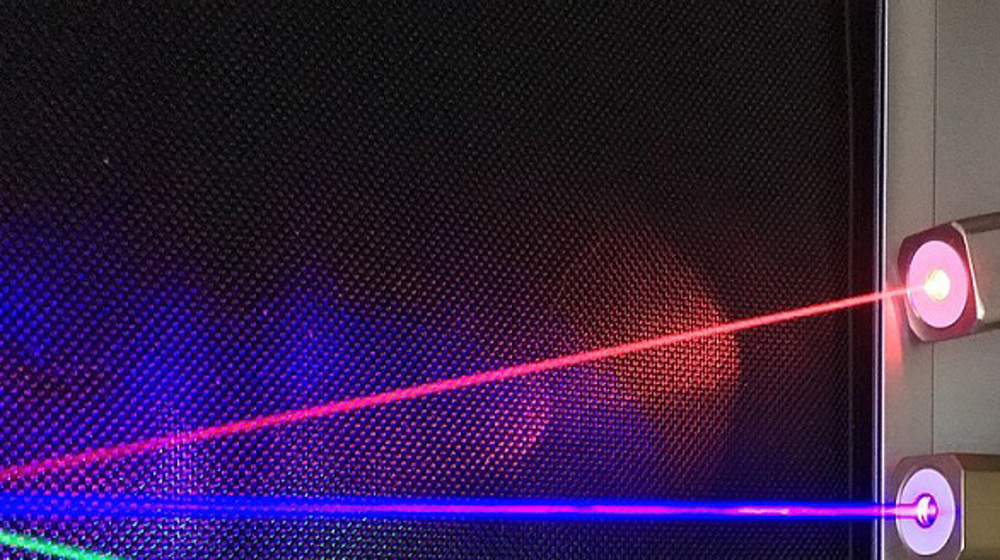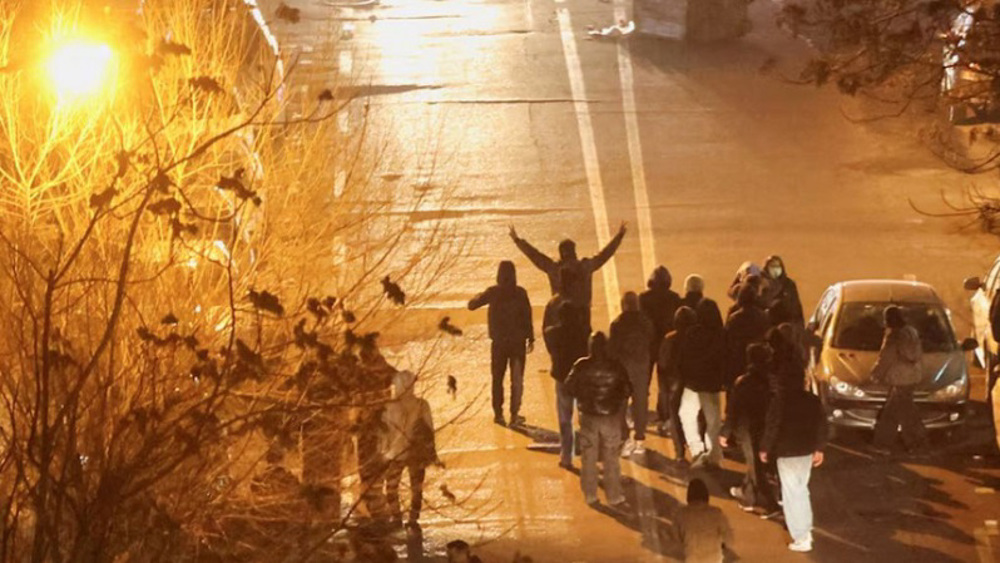It has spiked recently, but Asian hate runs way deeper in America
There's a long history of discrimination against Asians in the United States, but ever since the Coronavirus was found in Wuhan, China, violence has escalated against Asian Americans.
Former President Trump added fuel to the flames as he kept calling COVID-19 "The China virus", or the "Kung Flu" clearly promoting anti-Asian sentiments.
Whatever the motivation here, I know that Asian Americans are very, very concerned because as you know I've been speaking about the brutality against Asian Americans. For the last couple of months, And I think it's very very troubling.
US President, Joe Biden
Several protests have been held in the aftermath of the brutal murder of eight people, including six Asian women, by a male white supremacist in the state of Georgia. This has put the spotlight on the white supremacy, hatred, bigotry and violence specifically victimizing Asian Americans.
Asian hate in America
American authorities allege that the shooting spree at three Atlanta area spas had no racist motives. The murderer has claimed that he killed the women over his addiction to sex. Yet, the tragedy caught special attention, due to the surge in hate crimes against Asian Americans of various origins.
It is tragic, our country, the President and I, and all of us, we grieve for the loss. Our prayers are extended to the families of those who have been killed, and it speaks to a larger issue, which is the issue of violence in our country, and what we must do; to never tolerate it and to always speak out against it.
US Vice President, Kamala Harris
The shooting was just the tip of the iceberg in the new wave of hate against Asian Americans, which has escalated due to the COVID-19 pandemic. Many argue that the Chinese origin of the virus plays a key role in the new wave of xenophobia in the United States.
Regardless of the reasons, anti-Asian hate crimes increased by 150% in 2020 from the year prior.
Is it really shocking to see hate against Asians in America?
Racism, xenophobia and hate are part of an ongoing debate in the US. Is the situation of Asian Americans, in this regard, any different from other minorities in the United States?
This country was built on the enslavement of African people, just incredible violence for hundreds of years, of Europe and the US, and white people, you know, assaulting Africa, kidnapping African human beings. This is the basis for Wall Street, and, and the economic power of the US, and this is on land where genocide was committed against the indigenous people, that they're forced to live on concentration camps, called reservations today, and that, that this violence has been carried out not only by the state, but with the participation of the general white population in this country since day one.
Penny Hess, Civil Rights Activist
The death of the Asian women sparked a sense of heightened activism from within the Asian American community. Shocked by the killings, the Asian American community is taking the opportunity to expand its demands, including better ballot access and greater political representation.
Asian American activists also want expansion of the Asian American history taught in schools, the Asian American community is experiencing one of the largest spikes in severe incidents of hate and harassment in the United States and Canada.
Anti-Asian discrimination and violence originates from racism that has been aimed at the community for a long time.
What has been the impact of the latest shooting, particularly, on the Asian American community?
Asian Americans tended to think, and most still do tend to think, that if they just keep their heads down and work hard and don't ruffle any feathers that racism was going to somehow pass them by. And I think this has been a real wake up call for a lot of people in the Asian American community, that they have to now really become more allied with other minority communities.
Steve Justino, Practicing US Attorney
Some places are more hateful than others
Anti-Asian hate crime is soaring, but more dramatically in some places than others. Take New York City as an example with a nearly nine fold rise in 2020 compared to the year before.
By the nature of his murderous spree, Robert Aaron Long, the son of a Southern Baptist lay leader from Canton, Georgia, could end up kick starting the unity needed in the front against racism and bigotry.
Exercising racism against Asian Americans appears to be gaining a much broader recognition among the nation today. Other marginalized ethnic groups in the United States, such as the Hispanics and African Americans, are also joining the fight against anti-Asian sentiment. So what should the Asians do?
Well, as I said before, what I'm hoping is next is that the Asian American community is going to become much more politically active, to recognize that their model status, didn't protect them from the overt racism, and that they'll start working in "ally-ship" with other groups.
Steve Justino, Practicing US Attorney
Generally, anti-Asian hate crimes spiked by nearly 150% in major US cities last year, many analysts believe that Trump played a key role in the rise in hate that cannot be delinked from his vitriol anymore. This is while unrest in Asian neighbourhoods has increased.
Every time I see the picture when he shot... was pushed down on the ground, and it's terrible for me. And really that made me stand up and raise awareness for the Asian community, to stand up and don't be silent anymore.
Penny Hess, Human Rights Activist
What has been left out of the mainstream liberal opposition to anti-Asian racism in the aftermath of the tragic Atlanta shooting in the United States?
The slogan "Stop Asian Hate" has become the clarion call for liberal Americans to demonstrate their opposition to racism toward people of Asian descent.
Danny Haiphong, Journalist and Political Analyst
Unfortunately, the discourse around the slogan intentionally leaves out the critical context needed to fully understand the problem.
Racism is not primarily about hate, hateful feelings over a dehumanised segment of the population have always been an expression of political and economic interests; anti Asian racism is no different in this regard.
Consider the US context when the US elite were quick to jump on the "yellow peril" bandwagon to amass enormous profits from opium and other open door markets following the bloody Western invasions of China in the mid 19th century, otherwise known as the Opium Wars.
The US would employ anti-Chinese sentiment later in the century toward migrant laborers displaced from the very wars that we just discussed in order to" super-exploit" them as they built the nation's first railroad system.
Anti-Asian racism continued onward into the 20th century and justified the US occupation of the Philippines, the mass internment and concentration camps of Japanese residents, and the ruthless invasions of Korea and Vietnam.
And how about that current US led new cold war on China, where US media and political elites warn Americans daily about the threat that China poses to their interests?
This silence is palpable. Liberal efforts to fight racism inevitably become subsumed by what is most profitable, that the root of the problem must be ignored by the political mainstream, if the US social order based in racism since the beginning, is to maintain legitimacy, moving forward.
But make no mistake, until these routes are addressed, we can expect that anti-Asian racism, and all other forms of racism, will worsen as the US faces the twilight of its empire.
Danny Haiphong, Journalist and Political Analyst
According to a 2016 census estimate, there are nearly 21 million Asian Americans, accounting for 5.6% of the nation's population.
New York City, Los Angeles and San Jose California are the top cities with the highest number of Asian Americans. Since the Coronavirus shutdowns began last March, thousands of racist verbal and physical attacks have been documented against them.
Incidences of hate against Asian Americans have seen a skyrocketing spike over the last year, let alone the ones that happened and never get reported.
US President, Joe Biden
The "Stop Asian Hate" initiative was one of the outcomes of the rise in reports of hate crimes against Asian Americans and Pacific Islanders, triggering protests across the country. The activists want to remind authorities that Asian lives matter as well. But what is the duty of law enforcement and leaders in Washington in ramping up efforts to combat discrimination against the AAPI?
I don't know that there's really so much of a role for law enforcement or for the government, other than to set the tone to, instead of polluting the environment with "China virus", "China virus", Asian hate, to set the tone by making sure everybody knows that this is an inclusive country, we have many, many different ethnic groups and many different immigrant communities, and that we're all in this together.
So I think that the role for the government really is to set the tone. And when there are violations of law, assaults, or hate crimes, that those assaults and hate crimes be prosecuted to the full extent of law.
Steve Justino, Practicing US Attorney
The economic and educational success of Asian Americans, some would say, is the original reason why they face constant threats. However, over the past year and a half, the pandemic has directly increased the spate of violence and harassment Asians experience in America.
I don't look American enough! Unless I misread the US Constitution, we the people we are all the same. We are equal. Not this “You are more superior, you are not”. We are all the same. We are all, we all have, even I have some mindless prejudice, sometimes I caught myself, or I don't like the way you dress if not the same. But you know, prejudice, is, is hate.
Lee Wong, Township Board of Trustees, Chairman
People of all identities are coming together to denounce systematic racism now dominating headlines about victimization of Asian Americans, they seek an end to discrimination based on the color of their skin, the texture of their hair, or the shape of their eyes. Asian hate has hardly been noticed by Americans during history, let alone protested against.
My wife is a Pacific Islanders, and she is concerned about the safety of the elders in her family, her father, her aunts and uncles, she's concerned for herself and for our kids, it's, it's something that has been very startling to the Asian American Pacific Islander community. i know my youngest daughter in Seattle, who is a poet, a spoken word artist, spoke at a rally in Seattle shortly after the incident. So, I know it's something that's on the mind of almost all Asian Americans.
Steve Justino, Practicing US Attorney
Asian hate might abound in the US but the hate and divide go way deeper than that.
For years now, people of color have been victims of efforts by the so called justice warriors, partially disregarding the brutal history of aggression on Asians.
In the 1860s, 1870s and 1880s the Chinese in the United States were blamed for outbreaks of smallpox, in the early 1900s, newly arrived Japanese migrants were targeted for the outbreak of the bubonic plague.
And I think about the history of US colonialism in the Philippines, and how Pilipino bodies were referred to as incubators of leprosy.
US Vice President, Kamala Harris
Playing identity politics has been on the agenda of the far left for a long time. The identity politics has, in part, resulted in framing race as if everyone fits either into a black box or a white box.
With Asian hate on the rise, the leftist are failing to produce a picture of the world that corresponds to reality.
What should white people do in such a climate?
We, as white people, have to recognize that we are the colonizers. We're not, you know, observers or some other kind of thing, you know, seeing what is going on but we sit on the pedestal; our whole lives, our livelihood, the social wealth, the prosperity that we genuinely, genuinely experience, comes at the expense of African people and colonized people.
There's a direct relationship there that the US has to suck the blood of everybody else, in order for white people to exist and to live the lifestyle that we take for granted, and that world is coming to an end.
And I believe that a lot of white people want to stand on the forward side of history. They want to stand with others and they want to turn loose our whiteness, as we say, and join in solidarity, and the return of the stolen resources to Asian, to African people, to indigenous people and all colonized peoples.
Penny Hess, US Civil Rights Activist
The uptick in hate against Asian Americans is reminiscent of the Japanese internment camps, established during World War Two, by President Franklin Roosevelt, fearing the influence of the Japanese war machine; the US authorities rounded up about 120,000 people of Japanese ancestry and locked them up.
Guarded by armed soldiers, many of these camps were still being constructed when the incarcerees moved in. These hastily built prisons were overcrowded and unsanitary. People frequently fell ill and were unable to receive proper medical care. The War Relocation Authority, relied on incarcerees to keep the camps running, many worked in camp facilities or taught in poorly equipped classrooms, while others raised crops and animals. Some Japanese Americans rebelled, organizing labor strikes, and even rioting.
Steve Justino, Practicing US Attorney
The Japanese, many of whom were American citizens, were forced out of their homes and incarcerated in concentration camps, shortly after Japan's Attack on Pearl Harbour. A 1983 report revealed that the move resulted more from racism, than from any actual security risk.
The systematic disruption of their lives came with many hidden details, still unknown today, yet captured the apex of hate against Asians in America.
There is history of violence against Asians in the US
The US is attacking Asian people historically and today in both, both in terms of war and violence in terms of economic attacks as well, and that we recognise that the US dropped the bomb, the atomic bomb on Hiroshima and Nagasaki in Japan. They put Japanese people in concentration camps in this country during the Second World War and that you know that this that attacks on Asian people are long standing.
Penny Hess, US Civil Rights Activist
Asian Americans have been around since the US Civil War of 1865, but have not been included in the discussions around race that much. With around 20 million of them inside the country the question remains, will they ever have equal rights? Deep rooted, open bigotry, against Asians might have now gone underground but it continues to exist.
Bigness,… Goodness,... And we planned to come down here to Georgia, to the place that made it possible, to share that information. And then (on) Tuesday night we learned that eight of our neighbors were killed in a heinous act of violence.
US Vice President, Kamala Harris
Falling victim to racist rhetoric and xenophobia, the victims of the Atlanta tragedy were also women. Women, particularly women of color, also have their own plight in the United States, Asian Americans therefore are among the myriad marginalized communities demanding that their voice be heard. How did anti-Asian sentiments lead up to the situation we see today?
I think what we're seeing is a byproduct of Trumpism to a great extent. All of the talk about the China virus, China virus, China virus, China virus, was very toxic to the political environment, and it has so permeated society at all levels.
Steve Justino, Practicing US Attorney
Today, many Asian Americans live in fear, but they're also bound to hit the streets and loudly demand their rights in a country that claims to be the leader of the free world. Decades after the Japanese internment camps the outrage, sadness and fear, among Asian Americans and Pacific Islanders have only grown.
How have public perceptions of the Coronavirus played into what seems to be an epidemic of anti-Asian racism?
And I think that there are so many things to dive into when we talk about this epidemic of anti-Asian violence. I think it's twofold, you know, one element of it is the long historic reality of racism against Asian Americans in this country.
We've been persecuted for hundreds of years. I mean, the whole creation of Chinatown to begin with, as a concept, started because of massacres of Chinese people in America during the 1800s.
In fact, it happens so much it was called the Tacoma method, after Tacoma Washington, were 500 people in an angry mob burned, looted and destroyed, Chinese communities and forced them onto trains to leave. And so, you know, it became so widespread.
And the mayor of Tacoma became celebrated as a national hero, that this really became what happened all across the West Coast in forming Chinatown's by driving out Chinese people through very serious and really intense violence.
So that's kind of one component of it right, and then to bring us to the more modern aspect of it, it's really important that we contextualize the anti-Asian violence, not only just within Coronavirus, but within the greater US hegemony and really the US pivot towards Asia that began during the Obama era.
Rachel Hu, Journalist, New York
Donald Trump popularized phrases like 'Kung Flu' and the 'China Virus,' extremely racist ways to refer to COVID-19, what has his influence been on all of this?
During the Trump administration, I mean, they really put forward China as the reason why COVID-19 was just completely destroying our country, when in fact it was their actions, it was the actions of the US government or the rather the inaction of the US government that killed 500,000 people in this country.
We've had no economic relief, other countries like Germany, I mean other European countries, even in Singapore, they've given relief to people in their countries and we have not seen the same type of support whatsoever.
And so instead of taking responsibility for the butchering of this pandemic by the Trump administration, instead they placed the blame on China as a way to divert attention from the failures of US capitalism and the failures of the US government, and instead put the blame solely on China, as if China was responsible for the fact that people in this country have not had stimulus checks on a regular basis to keep us afloat during a pandemic.
Rachel Hu, Journalist, New York
We are looking at absolutely catastrophic mismanagement and mishandling of the Coronavirus situation in the United States, so it's no wonder the man in the street is looking to place the blame elsewhere.
With racism and inequality raging across America, it's no surprise to see that Asians are also suffering from repercussions of the deep rooted issue despite many Asians residing in America being economically successful and well educated.
VIDEO | Germany, not just merely an economic recession
Discover Iran: Hormozgan, home to the last lenj boatbuilders of Persian Gulf
VIDEO | Condition of Gaza hospitals at the beginning of phase two recovery
VIDEO | Tehran metro station vandalized in attack by foreign-backed terrorists
VIDEO | Angry Iraqis set fire to Trump image, US flag
'It's simple — Trump's failing': Netizens rip into US warmongering against Iran
ICE shooting of protester in Minnesota
UN envoy: US responsible for ‘unpredictable consequences’ of aggression on Iran










 This makes it easy to access the Press TV website
This makes it easy to access the Press TV website